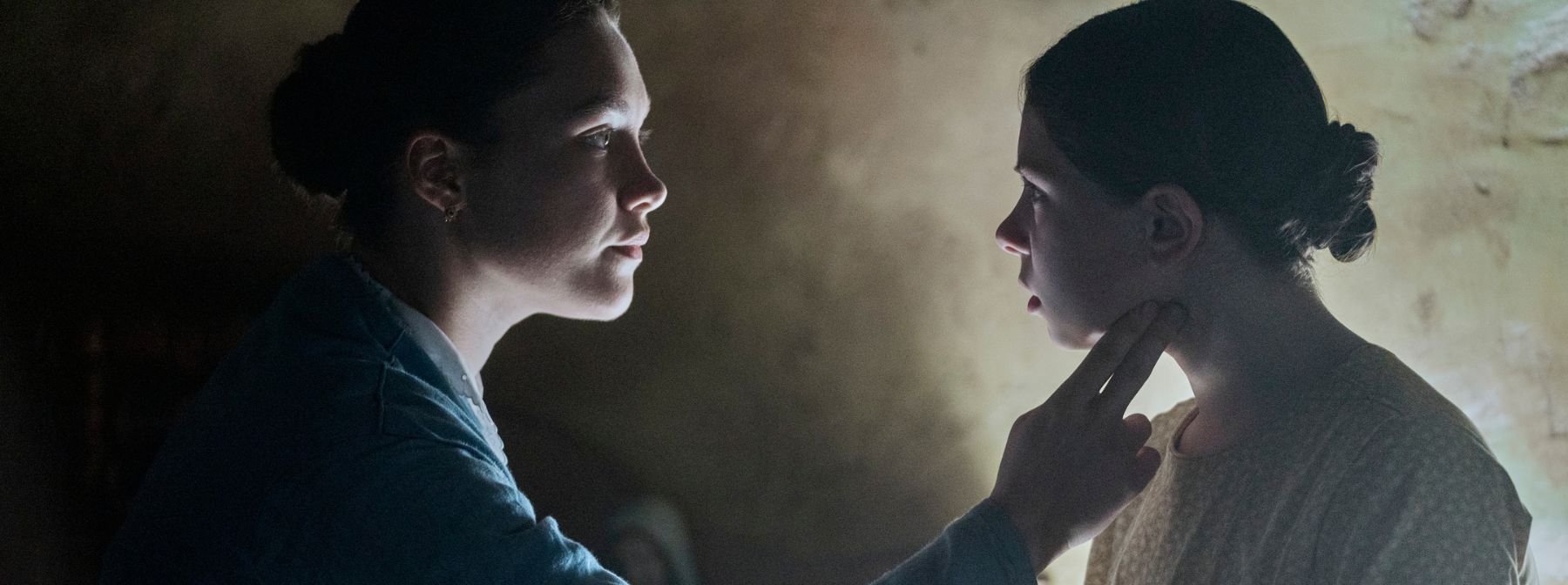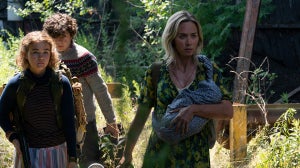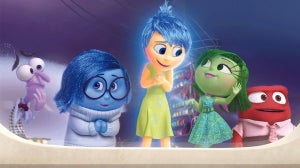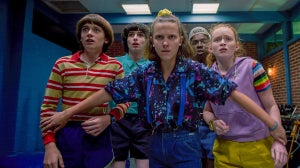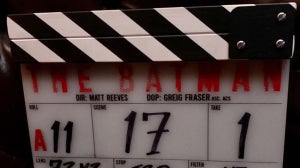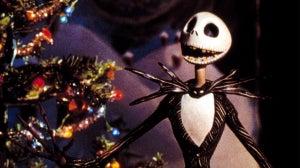
It’s a piece of history that has long fascinated author Emma Donoghue, going on to inspire her 2016 novel The Wonder.
“It’s freaky stuff, isn’t it?” she laughed to Zavvi, as we caught up with her and the team who have adapted the book for the big screen.
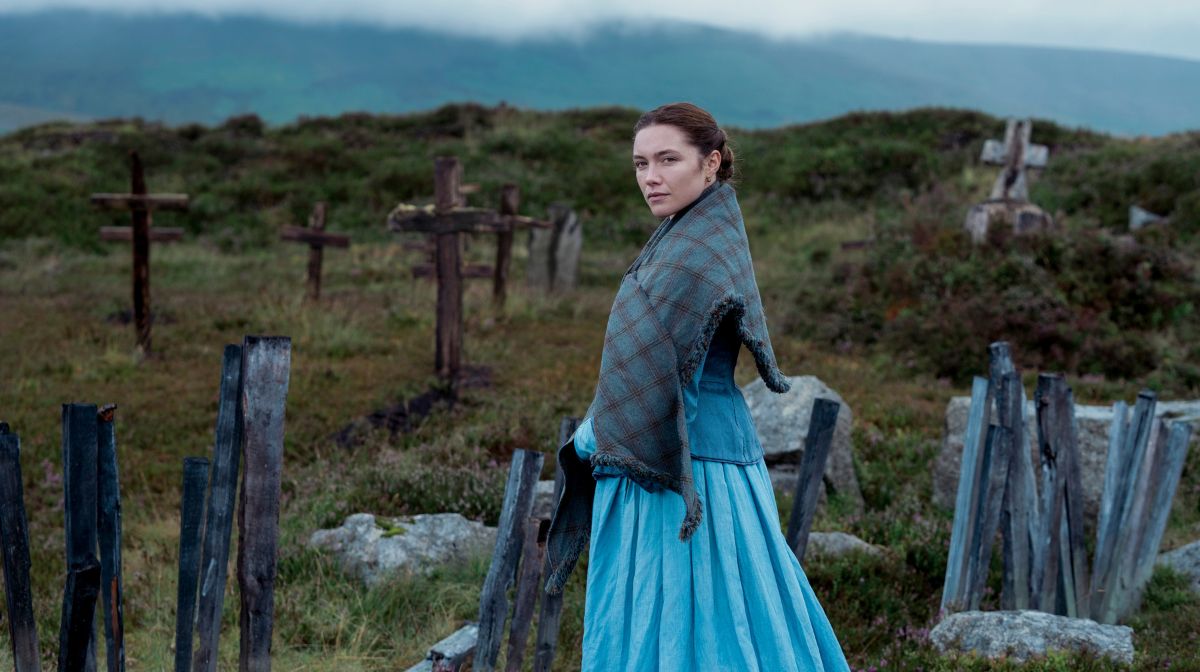
“There were maybe about 60 of them - it was an odd, persistent cultural fantasy. People wanted to believe that somebody could rise above the body and its physical needs, with it occurring across different countries and faiths, as well as within not particularly religious communities.
"They wanted to believe that a girl could live on air, which was really troubling to me. Writing the book, I looked at my own children who are healthy eaters, wondering what it would be like if energetic and intelligent kids were put in a culture where they were rewarded for the sacrifice of not eating.”
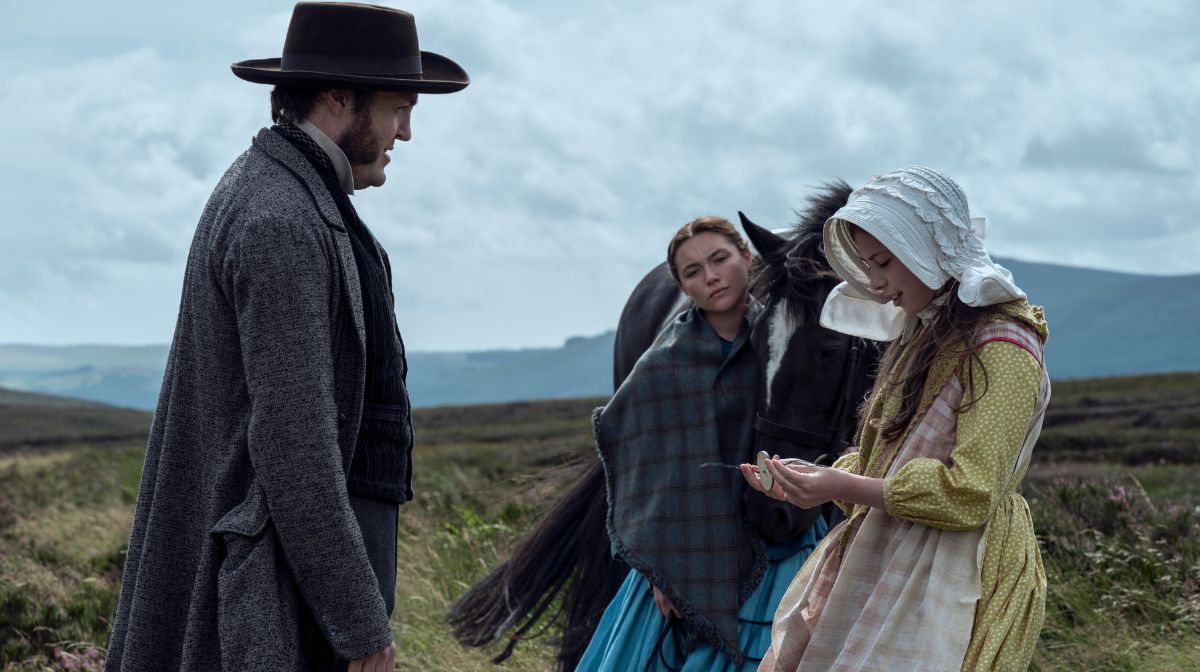
In The Wonder, English nurse Lib Wright (Florence Pugh) makes the journey to a tiny Irish village to observe a girl she has been told has survived without needing to eat. Upon arrival, Wright hears that the girl has been food-free for several months.
As a nurse, she refuses to believe that is medically accurate information but quickly discovers through her time monitoring the young patient that the faith of those in the town is clouding the reality of the apparent miracle unfolding before their eyes.
Donoghue, who previously adapted her novel Room for the screen, believes that the film is arriving at a time where it’s even more relevant:
https://www.youtube.com/watch?v=htybz7XscIY
“It’s all because of Covid. A lot of us realised that science is something we have to fight for as there are some deeply anti-scientific forces out there which led to many people ignoring the facts and losing their lives during the pandemic.
"This period drama has become incredibly timely: there’s a political fire to it, but it’s not heavy-handed. You can still approach this as an odd story from the past.”
Director Sebastián Lelio is no stranger to stories of women overcoming adversity in their communities, having previously made the likes of Disobedience and the Oscar winning A Fantastic Woman, but it was the relevancy of the material and not its thematic ties to his previous work which attracted him to the project.
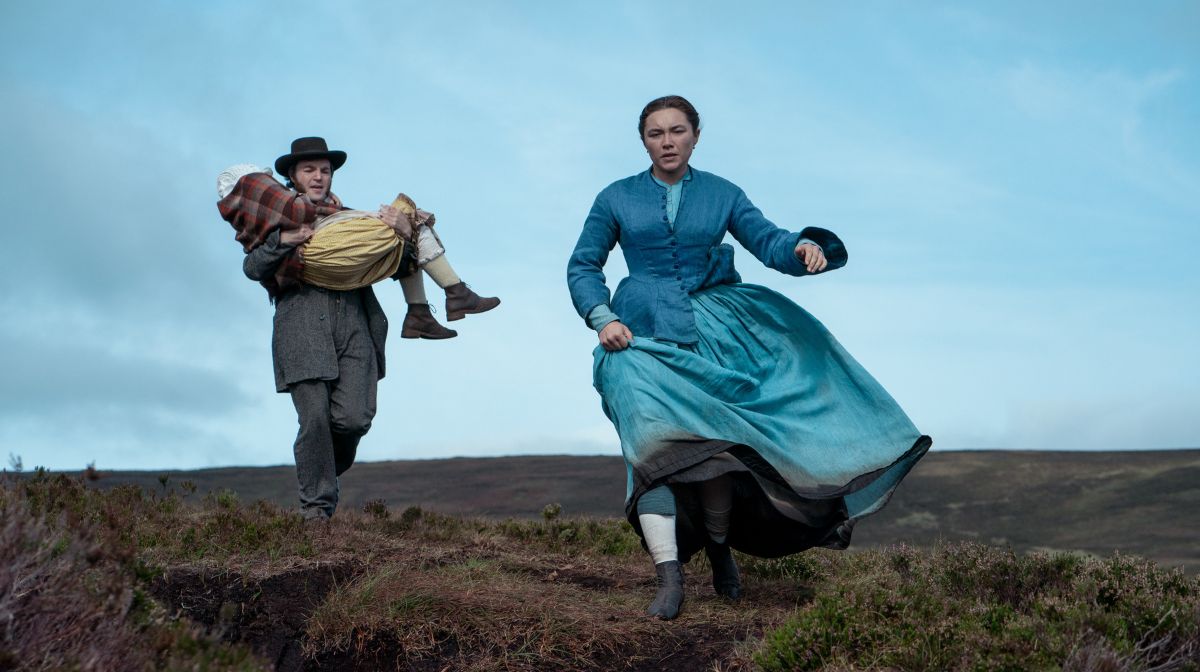
“The journey of Lib is very fascinating – a scientifically-minded rationalist caught in a community where the religious fervour borders on the fanatic. Her journey is partly about transcending her own rationality, to find a solution that’s against the belief system of those around her, which is something I really connected with.
"This is not a story about 1862, the power dynamics at play here still exist, and in the context of this story, the only casualty is the girl – people's misplaced faith has led them to ignore the very real fact there is a young girl suffering at the centre, which they’re all trying to use for their own benefit.”
In the source material, the character of Liv is much older, but the 26-year-old Pugh was considered to be perfect for the role despite this.
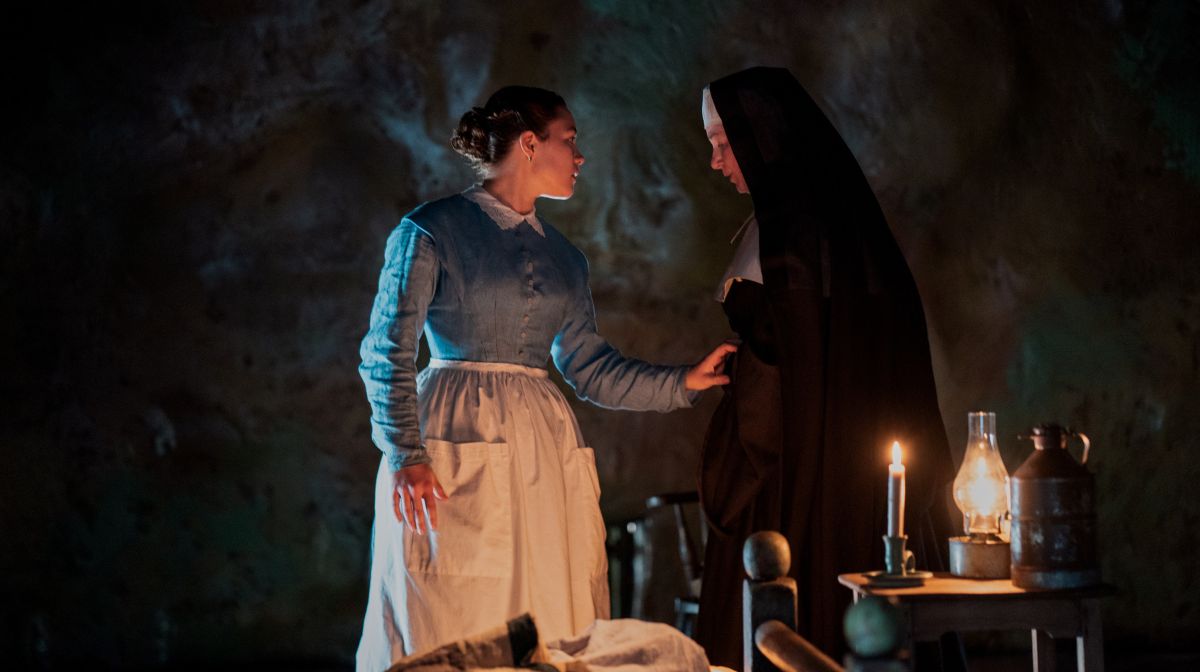
“Having her involved in this project is a blessing”, Lelio continued. “She’s not only immensely talented, but she has this moral authority onscreen – you're always on her side, and she has this expressive face where you feel like you could almost touch her thoughts, which creates an intimate bond with the viewer.
"Her character is thrown into a moral dilemma and she ends up doing extreme acts, but when you’re with Florence, the viewer is still on her side. Her actions are morally complex, but you stay with her, and I think you’d lose the audience if anybody else was in that part”.
Joining Pugh in the cast are a murderer’s row of excellent character actors, including Tom Burke as a Telegraph journalist sent to observe the case, and the likes of Toby Jones and Ciarán Hinds as the town elders who want to exploit the “miracle” at their hands.
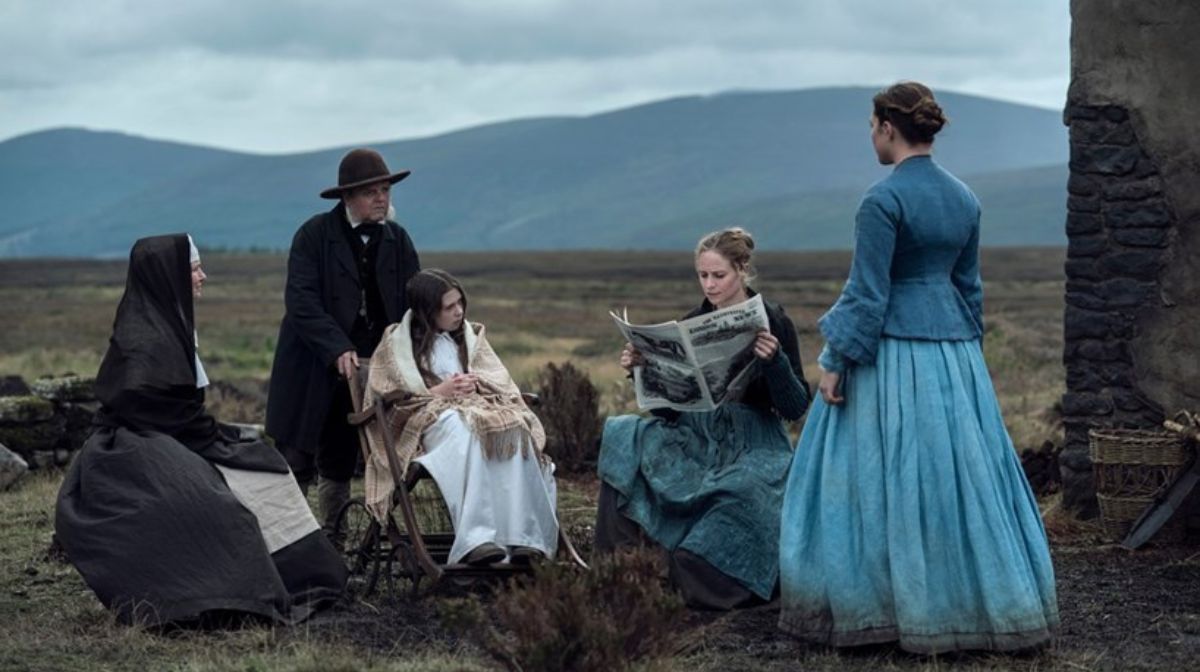
Perhaps the most striking supporting performance comes from 13-year-old actress Kíla Lord Cassidy, who plays the titular wonder, Anna O'Donnell. It’s an intense role for any performer, but even more so for such a screen newcomer in their first major role – although you wouldn’t know it from talking to her.
Kíla starred alongside her mother Elaine, who also plays her screen mother; the pair would prepare for their parts together, but made sure to never get wrapped up in the darkness of their roles.
“You always need to make a strong connection when acting, but doing this with my mum was like having a fast pass at the airport! It’s an intense role, but luckily due to her being there with me alongside the most wonderful cast and crew, it never felt like a challenge – it was transportative while the cameras were rolling, but I never stayed in that darkness.
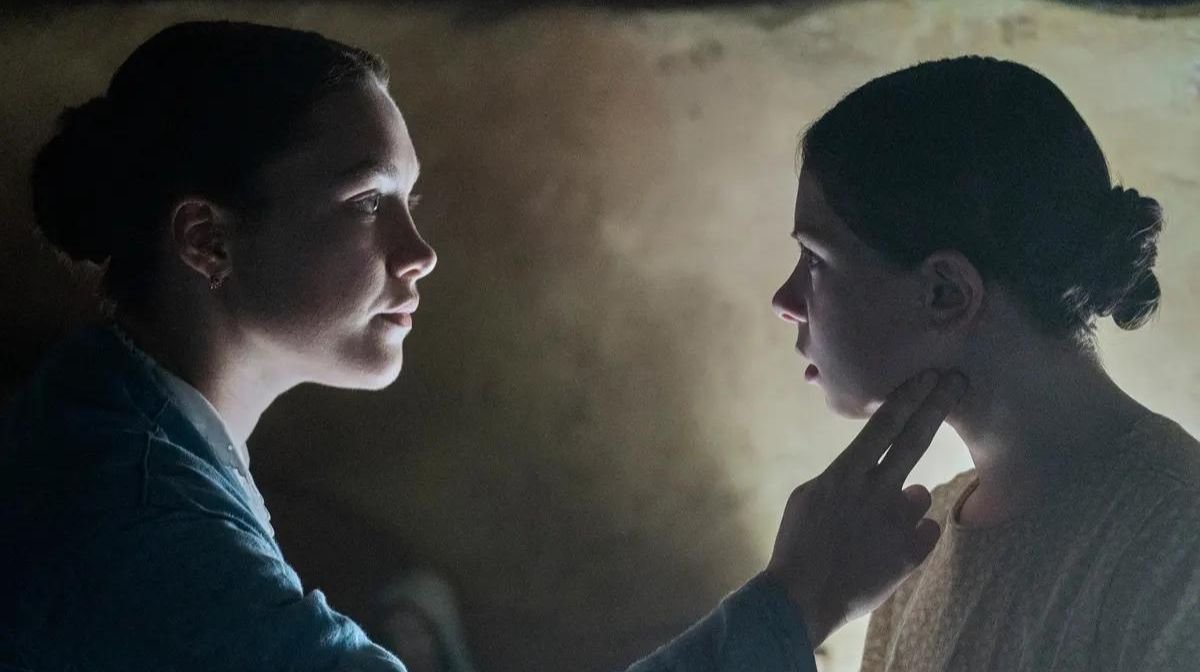
"There were giggles every time Sebastián said cut. In fact, the only challenge I had throughout was staying awake while filming; my character is bedridden for most of the film, and that bed was REALLY comfy – I only needed to get woken up in the middle of shooting once during filming though!”
The elder Cassidy said that the experience of starring alongside her daughter for the first time often felt like they’d gone on holiday together; “You know when you look at holiday photos, and see those snapshots of your memories, and you forget the things you captured together? Watching this back was like that, and it’s now captured forever, which is really special. Admittedly, the film itself is a bit more depressing than your usual holiday photo...”
Elsewhere on the island, Kitty (Censor star Niamh Algar) might be the slipperiest character of all, seemingly operating with a knowledge of everything that’s unfolding, but not giving anything away to the nurse investigating the case. Algar has previously said that broken characters are the most fun to play because you “get to then try and put them back together”, but here, she’s playing someone less obviously damaged.
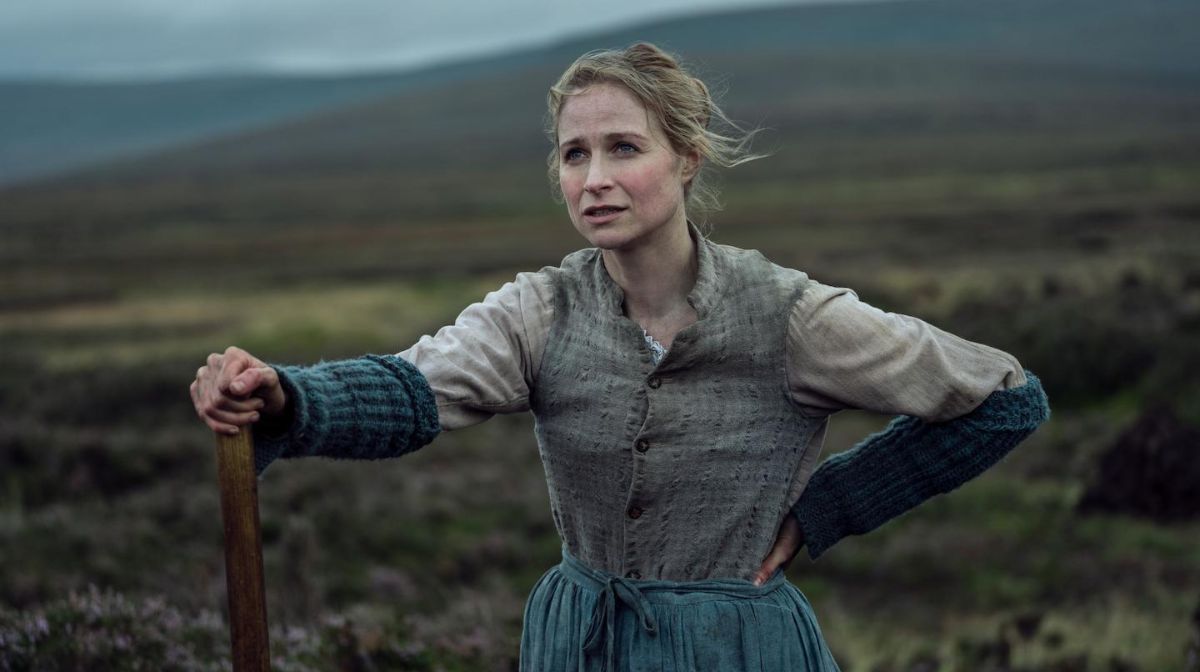
As she explained to Zavvi: “Kitty isn’t broken so much as she’s lost. She’s trapped in this deeply religious community, and you can only see these flickers of her own voice – but at the same time, you can see her clearly observing everything. It’s fun to play a character who is acting as a spectator, who may know more than she’s letting on, as that makes it all the more complicated for the audience trying to figure out the narrative for themselves.”
The big innovation in this adaptation is the inclusion of a new, fourth-wall breaking framing device about the very nature of storytelling – a device which Algar herself narrates out of character. The actress believes this helps emphasise the film’s themes about the dangers of believing in a compelling fiction, adding that “What’s exciting is that the film isn’t what you expect it to be.
"I like that it winks at the audience when they get too lost in the story, saying that by getting too sucked into this world, you’re mirroring the characters who are also so divinely invested in their own stories they have lost track on the reality in front of them.
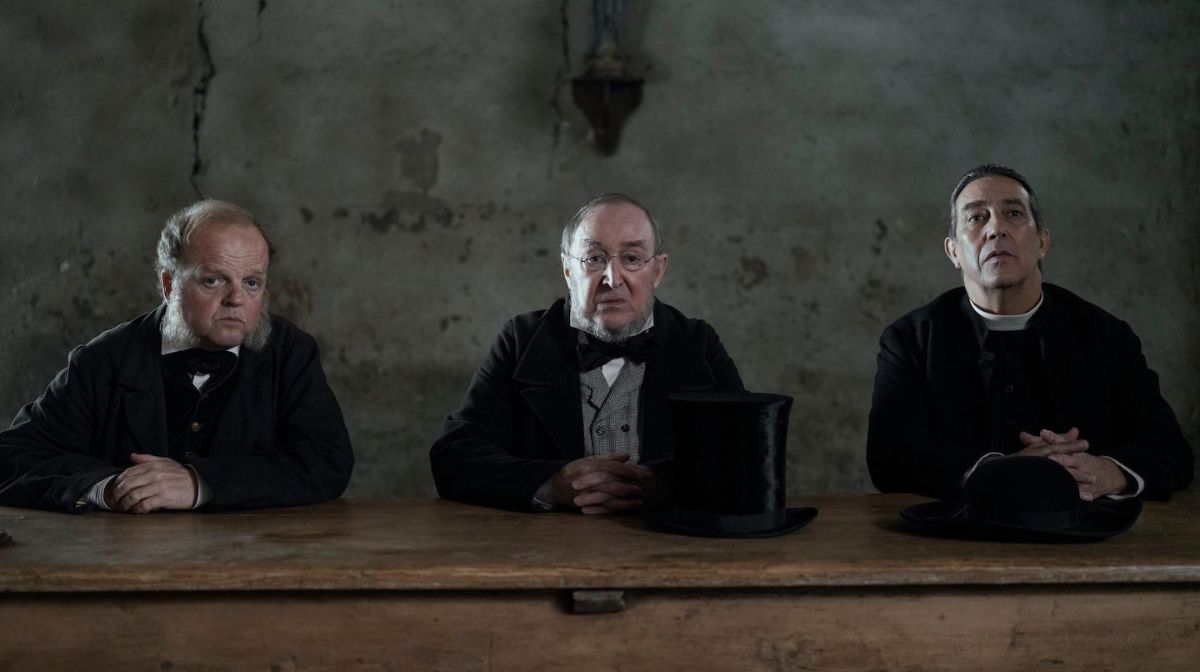
“I think the film is ultimately about the breakdown of communication, and how tension arises when a logical mind starts questioning the stories other people are getting lost in. But Florence’s character is telling stories just as much as everybody else – hers are just in the form of a diary”.
The Wonder is a complex tale of science and faith, wrapped up in an engrossing, atmospheric psychological thriller. It may take you back to 1862, but this is very much a film rooted in the here and now.
The Wonder is streaming on Netflix from 16th November.
For all things pop culture, follow us on Facebook, Twitter, Instagram, and TikTok.

